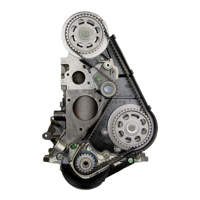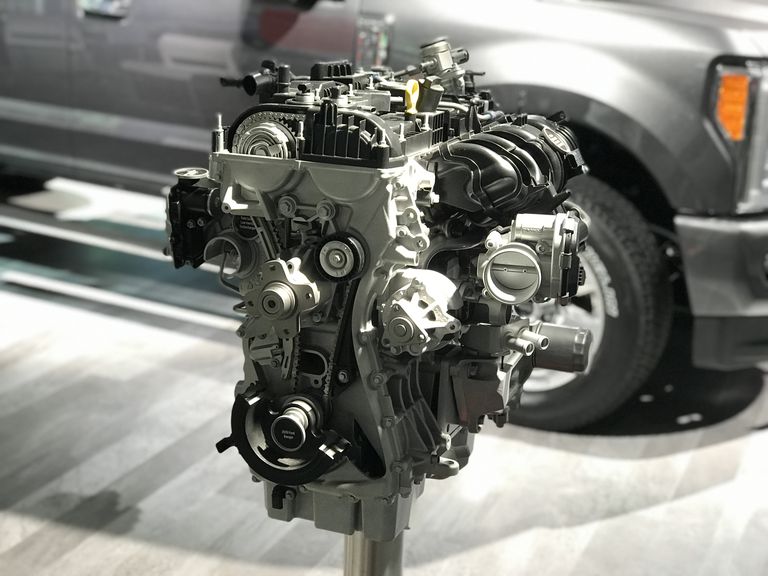What Makes a Vehicle Engine Run Efficiently: Top Tips for Optimal Treatment
The smooth procedure of a cars and truck engine is fundamental to both efficiency and durability, making ideal treatment a necessary obligation for vehicle proprietors. What particular steps should you prioritize to guarantee your engine stays in peak problem?
Regular Oil Adjustments
One of the most critical aspects of vehicle upkeep is guaranteeing your engine obtains regular oil adjustments. Engine oil lubricates interior elements, decreases friction, and assists keep optimal operating temperature levels. Over time, oil weakens due to heat, impurities, and the natural byproducts of burning, resulting in minimized performance and possible engine damages.
The majority of suppliers recommend changing the oil every 5,000 to 7,500 miles, yet this period can vary based upon driving problems and oil type. Artificial oils may allow for longer intervals between changes. Regular oil adjustments not only enhance engine efficiency yet also boost gas performance, as tidy oil advertises smoother operation.
Disregarding oil adjustments can result in sludge buildup, which harms circulation and can bring about severe engine problems. It is crucial to examine oil levels regularly and monitor for any unusual modifications in shade or consistency, which can indicate contamination or degradation.

Preserving Coolant Levels
Preserving appropriate coolant levels is important for protecting against engine overheating and making certain optimal efficiency. The coolant, usually a mix of water and antifreeze, distributes with the engine, taking in warm and avoiding thermal anxiety. Insufficient coolant can result in boosted engine temperature levels, which might trigger extreme damage or perhaps complete engine failure.
To maintain optimal coolant degrees, on a regular basis inspect the coolant tank, generally situated in the engine bay. Make certain the coolant is loaded to the suggested mark, as suggested in your vehicle's proprietor manual. It is recommended to examine the degrees at least once a month or soon trips, especially throughout extreme weather problems.
If you notice that the coolant level is continually low, there may be a leakage in the cooling system, which should be dealt with promptly to stop additional difficulties. 2.2 ford ranger engine. Furthermore, flushing the coolant system every a couple of years can aid eliminate any accumulated debris and ensure effective warmth exchange
Checking Air Filters

It is advised to inspect the air filter every 12,000 to 15,000 miles, or a lot more often if driving in damaging or dirty conditions. An easy visual evaluation can frequently disclose whether the filter is unclean or damaged. If the filter appears stained or has visible dirt buildup, it ought to be replaced promptly.
Making use of a top quality air filter created for your particular car version try this web-site can additionally boost engine performance. In addition, some lorries may take advantage of reusable filters that can be cleaned up and reinstalled, supplying a environmentally pleasant and cost-effective option.
Inspecting Flicker Plugs
Flicker plugs are necessary parts of a lorry's ignition system, directly impacting engine performance and performance. They develop the trigger that ignites the air-fuel mixture in the combustion chamber, assisting in the engine's power generation. Normal evaluation of ignition system is critical for keeping optimum engine feature and protecting against potential problems.
During an assessment, look for indicators of wear or damages, such as splits, carbon buildup, or too much space widening. A healthy trigger plug usually exhibits a brown or tan color. Dark soot or oil deposits can indicate improper combustion, while a white or blistered appearance may recommend getting too hot. Both conditions require prompt attention to avoid additional engine damages.
It's advisable to evaluate stimulate plugs every 30,000 miles, or as suggested in your vehicle's owner guidebook. Furthermore, consider replacing them according to the maker's standards, as old or used ignition system can bring about misfires, decreased fuel efficiency, and enhanced emissions.
Tracking Tire Pressure
Ensuring proper tire stress is an essential aspect of automobile security and efficiency. Under-inflated tires can lead to decreased gas effectiveness, raised tire wear, and compromised handling. Conversely, over-inflated tires can minimize grip and boost the threat of blowouts. Normal monitoring of tire stress is vital for optimum car procedure.
Tire pressure must be checked a minimum of when a month and soon trips. Utilize a trustworthy tire stress scale to determine the stress when the tires are cold, ideally prior to the car has actually been driven for at least three hours. Describe the automobile's owner manual or the placard located see here now on the driver's side door jamb for the supplier's recommended pressure degrees.
It is essential to keep in mind that tire stress can vary with changes in temperature level; a decline of 10 ° F can lead to a 1-2 psi reduction in stress. Additionally, aesthetically examine tires for any indicators of wear or damages during your monitoring regimen. Keeping proper tire stress not just improves lorry safety however likewise boosts fuel effectiveness and prolongs tire life, ultimately adding to a smoother engine performance.
Final Thought
In final thought, maintaining an auto engine's smooth operation needs attentive attention to a number of crucial aspects. Ultimately, an aggressive approach to engine care is vital for guaranteeing reliability and performance over time.
One of the most critical elements of vehicle maintenance is ensuring your engine receives regular oil adjustments. Engine oil lubricates internal parts, reduces friction, and aids preserve optimal operating temperatures. Regular oil changes not just enhance engine efficiency yet also enhance gas efficiency, as tidy oil promotes smoother operation.
Inadequate coolant can lead to raised engine temperature levels, which may create extreme damage or also complete engine failure.
